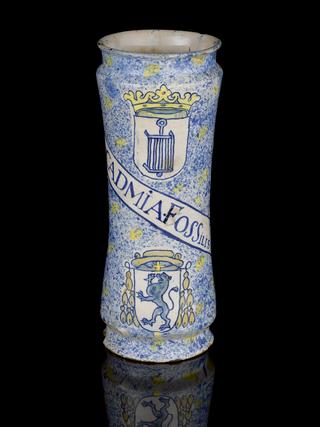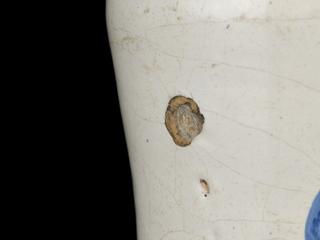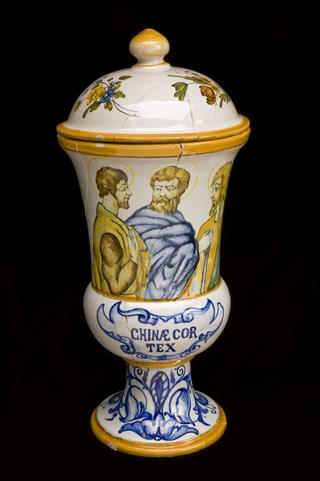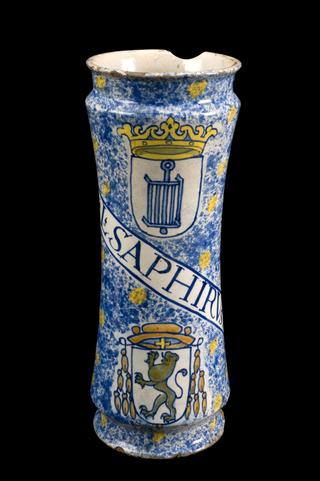
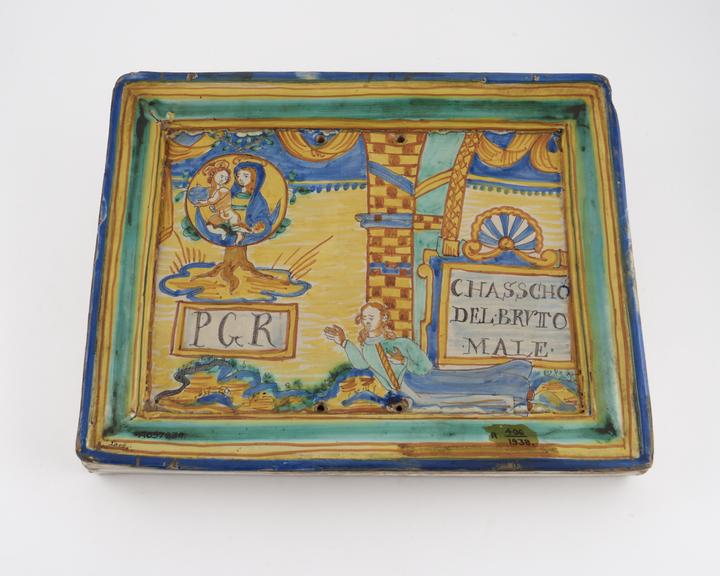
Rectangular pottery plaque, one of a series depicting miraculous appearances of the Virgin Mary, majolica, made at Deruta, Umbria, Italy, 1760 to 1800
Painted plaques like this are known as ‘ex votos’, meaning ‘from a vow’ in Latin. Left in a church in gratitude for answered prayers, each one tells a story of a cure or delivery from disaster through the intervention of the Virgin Mary or another Christian saint.
Ex votos can take various forms. This colourful glazed pottery example, known as majolica, is from Deruta in the province of Umbria, Italy, a town renowned for its ceramics since the 1400s. It depicts a prostrate individual. The letters P.G.R. stand for Per Grazia Ricevuta (By Grace Recieved).
Details
- Category:
- Medical Ceramic-ware
- Collection:
- Sir Henry Wellcome's Museum Collection
- Object Number:
- A657839
- Materials:
- earthenware (tin-glazed)
- Measurements:
-
overall: 247 mm x 325 mm x 38 mm,
- type:
- plaques
